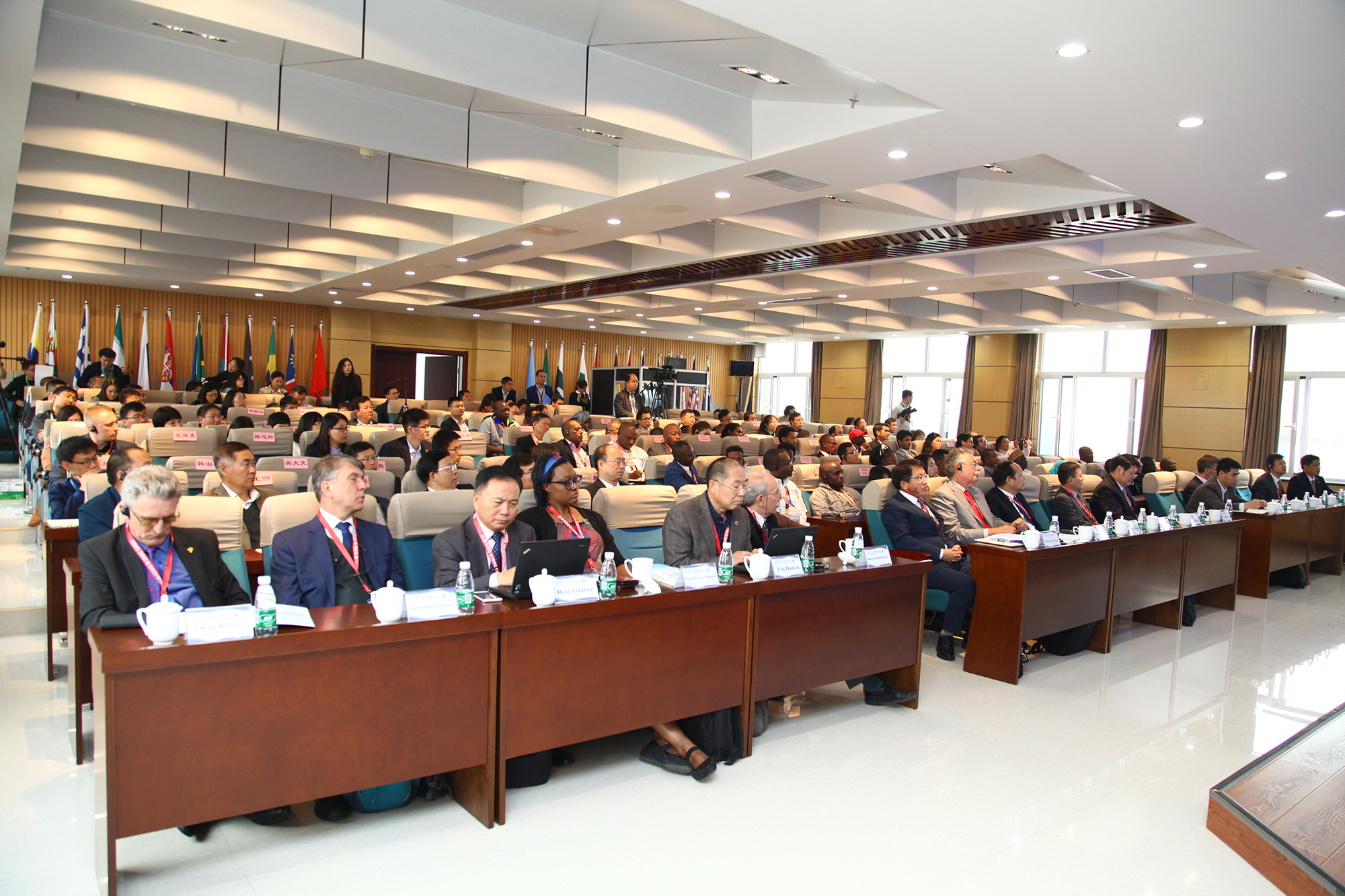ICGG Successfully Held the Seminar on International Scientific Cooperation Program “Mapping Chemical Earth”
The Seminar on International Scientific Cooperation Program “Mapping Chemical Earth” and the 2nd Session of the 1st Governing Board and Scientific Committee Meeting, hosted by the Institute of Geophysical and Geochemical Exploration (IGGE), CAGS, organized by the UNESCO International Centre on Global-Scale Geochemistry (ICGG) took place in Langfang on October 15th, 2018. The meetings lasted for 4 days.
The meetings were held with the aim to summarize the progresses made in the past two years since the launch of the "Mapping Chemical Earth" Program, exchange thoughts on the application of global geochemical baselines on resource evaluation, environment, health, agricultural development, share the collaboration results with “Belt and Road” countries and experience on implementing the “Mapping Chemical Earth” Program, discuss the UNESCO ICGG Protocol on International Geochemical Mapping, and eventually work out the next-step work plan.
Mr. Li Pengde, Member the Standing National Committee of the Chinese People's Political Consultative Conference and Deputy Director of the China Geological Survey, Ministry of Natural Resources, expressed that “Mapping Chemical Earth” was a great program which had provided solutions and ways to sustaining resources and environment, and broght forth new ideas for developing geosciences.
Mr. Zhao Caisheng, Director of the Science and Technology Development Department of the Ministry of Natural Resources, Mr. Qiao Zhengshun, Director of the National Commission of China for UNESCO, also delivered speeches at the opening ceremony. They firstly affirmed the work of ICGG during since its establishment and showed their determination to go on supporting the work of ICGG.
Dr. Peng Xuanming, Director of ICGG and IGGE, said that in the past two years, with the support of the Ministry of Natural Resources and the China Geological Survey, ICGG had cooperated closely and actively with the regional Centres of CGS in order to carry out various exchanges and cooperation with countries around the world. They have cooperated with 32 developing countries; have completed the Global Geochemical Baselines Project, covering 4.9 million km2 and the second round of China Geochemical Baselines Observation Network Project, covering 9.3 million km2; have cooperated with the “Belt and Road countries to complete the national-scale geochemical mapping project, covering over 1.4 million km2; have trained nearly 500 technical staff from overseas countries; have developed the International Geochemical Mapping Guidelines, which will provide technical support to developing countries and play the leading role of China in geochemical mapping in the world.
Representatives from China, Australia, Russia, Colombia, Italy, Ireland, Brazil and other countries each made presentations at the seminar, including “Enhance International Cooperation on Geochemical Mapping to Support the Resources and Environmental Development” “Mapping Chemical Earth: Progress and Challenges” “Mapping and Understanding Chemical Earth: Experiences from Australia” “DBAR, a Scientific Program for Countries Along the ‘Belt and Road’” “Applied Geochemistry from National to Regional/Local Scale: an Example from Italy on a Multimedia Sampling Environmental Project” “Towards Machine Learning for Identification of Hidden Spatial Patterns and Relationships in Big Data of Environmental Geochemistry", "Multi-Scale Geochemical Mapping in Russia" “Multi-Scale Geochemical Mapping in Brazil” " Multi-Scale Geochemical Mapping in Colombia". The reports briefly presented the progress of “Mapping Chemical Earth" of each partner country, along with the application results of geochemical mapping work in global resource evaluation, environment, health, agricultural development, the collaboration fruits with "Belt and Road" countries, the experience from implementing the geochemical mapping work.
After a hot discussion, experts came up with the work plan for the following years, which mainly focused on obtaining global-scale geochemical data, to fully support the sustainable development of natural resources and environment, build a better home for mankind.
Others present the seminar were representatives from the UNESCO, China National Committee for UNESCO, IUGS, other UNESCO Category 2 Centres in China, Ministry of Natural Resources, Ministry of Science and Technology, China Geological Survey, ICGG Governing Board, ICGG Scientific Committee, and participants of the 2018 ICGG Workshop on International Geochemical Mapping, the 2018 Training Course on Geochemical Mapping and Environmental Geochemical Survey Techniques for Developing Countries.


